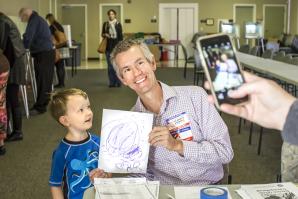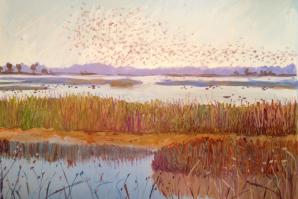
California Drivers Pay for Underfunded State Patrol Pension
Californians in April will start paying more to register their cars — not to help maintain roads, but to keep the pension checks rolling for the motorcycle cops who policed them.

Wells Fargo Wants a Quiet End to Its Scandal, Risking More Noise
Wells Fargo’s attempt to force aggrieved customers into closed-door arbitration over its fake-accounts scandal is drawing a legislative backlash in its home state of California and risks subjecting the bank to another round as a public punching bag.

Infographic: The Low-down on Our Startups of the Month
Each month, Comstock’s online features a different Startup of the Month. As 2016 comes to a close, we take one last look at these startups to see how they stack up.

California’s Retirement Mandate Aims to Give Every Worker Chance to Save
The last time millions of Americans were signed up for a new government-mandated benefit program, it didn’t go so well. The initial rollout of the Affordable Care Act, or Obamacare, resulted in broken websites, angry employers and lots of confused consumers.

Trump’s Repeal Threat Looms Over Obamacare at Critical Point
With about two months to go before it hands over the White House — and potentially Obamacare’s fate — to Trump, the Obama administration is making a final push to get people into the program.

Stocks Rise, Bonds Fall as Traders Weigh Trump’s Economic Plans
U.S. stocks rallied amid heavy trading and Treasuries tumbled as investors reassessed the effects of Donald Trump’s surprise victory in the American presidential election.

A Day in the Life of a Neighborhood Precinct
Logan Leonhardt walked up to the check-in table at Poll A in Sierra 2 Center and the 4-year-old turned in his purple “ballot” to neighbor and poll worker Eric Johnson. His mother, Krystin, quickly snapped a photo of Logan’s first unofficial vote, which remained on display for the rest of the day.

Excerpts From the Book ‘Water: More or Less’
Sacramento water expert and local artist pen book on California water
Recently published book includes reflections on the changing landscape of California water by 20 top water leaders.

Bridge Over Troubled Waters
Sacramento water agencies work together, adapting to drought and planning for a future of growth
While California is all-consumed with water wars, the Sacramento region’s efforts toward collaboration are easy to overlook. The best example is the landmark Water Forum Agreement, which 22 water agencies from Sacramento, El Dorado and Placer counties signed in 2000 to balance the environmental and human needs of the lower American River. Now, water agencies have joined together to launch the River Arc Project.

Power Inn Alliance Forges Partnership with Sacramento Police
Advocacy group and law enforcement work together to share information and reduce crime
When a woman drove a Lexus SUV through Fruitridge and Power Inn Road earlier this year, there were no obvious signs that it was hot and teaming with drugs. Within moments a police observation device returned a hit on the stolen vehicle, and Sacramento Police Department Officer Patrick Mulligan had her pulled over.


